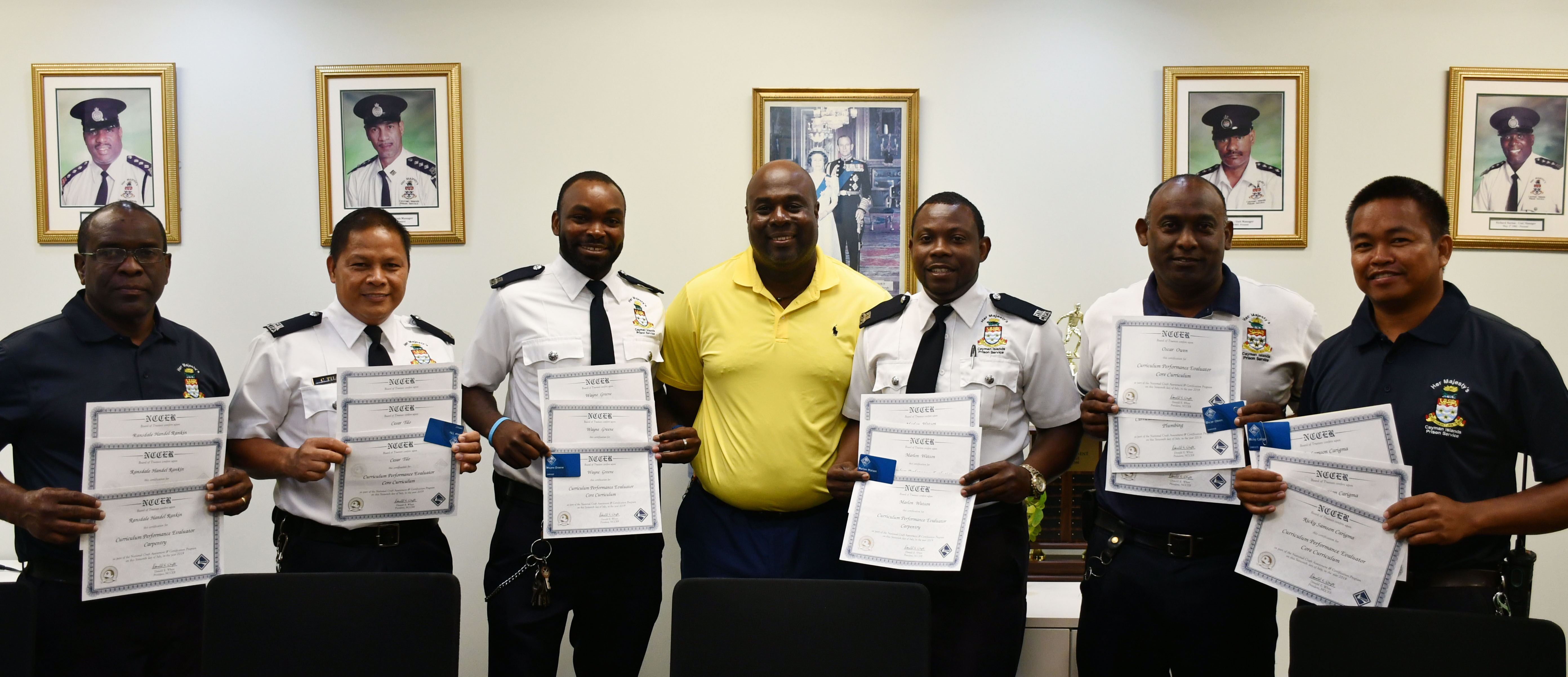Cayman: New qualifications give hope to inmates

Prisoners will soon be able to further their education and enhance their CVs while serving their time as part of a newly introduced initiative.
Her Majesty’s Cayman Islands Prison Service (HMCIPS) is furthering its commitment to equipping inmates with skills and training to enhance their ability to secure employment upon re-entry to the community by offering opportunities to gain accredited qualifications.


Six HMCIPS prison officers have achieved globally recognised accreditation with the National Center for Construction Education and Research (NCCER) which will enable them to train inmates in five vocational courses.
The accreditation was facilitated by local training and development company, Inspire Cayman Training Ltd. This collaboration also enables HMCIPS to tap into Inspire Cayman’s network of local employers to help ex-offenders with their job search.
The five courses to be offered by HMCIPS include carpentry, electrical, plumbing, HVAC and Automotive. Inmates wishing to take part in one of the vocational courses must first complete a ‘Tools for Success’ course which teaches essential employability skills.
Modules in the mandatory course cover getting a job, keeping your job, building strong relationships with your supervisor, teamwork, communication skills, giving and receiving criticism and conflict resolution.
Once inmates are successful with Tools for Success, they will transition to NCCER foundation course known as Core Curriculum. Core Curriculum introduces inmates to a wide career path in the construction industry. Modules in the mandatory course cover Basic Safety-Construction Site, Introduction to Hand Tools, Introduction to Power Tools, Introduction to Material Handling and Introduction to Construction Drawings.
The decision to offer these particular courses was made in consultation with Inspire Cayman Training and over 60 Caymanian businesses. This helped determine the skills that are most in demand and therefore provide inmates the best possible chance of employment.
Commenting on the recent addition to HMCIPS’ suite of rehabilitation programmes, the Minister for Home Affairs, Hon. Tara Rivers, JP, reflected on the reason behind offering inmates this training.
“Having a job and participating in employment helps to break the cycle of reoffending,” said Minister Rivers.
“Breaking the reoffending cycle does more than just empower the individual to make a positive change in their life. It also helps to keep families together, teaches our children that we all have the ability to change for the better and ultimately, it makes our communities safer,” continued the Minister.
When deciding to offer these courses, flexibility was important. As the courses are globally recognised, inmates can choose to continue their studies in the community once they have finished their sentence. Alternatively, they may decide to move overseas, where their qualifications will also be acknowledged.
“A lack of hope for the future increases the likelihood of an inmate reoffending when they leave prison. We want to present them with a range of positive opportunities which will help broaden the choices they may have as they transition back into our communities” commented Prison Director, Steven Barrett.
“There are many ways someone can get into crime and there are many ways out of it. We are keen to be flexible in our approach to engaging with those in custody to help us respond to their individual needs. We need to be open to doing things differently otherwise we should have no real expectation of either slowing down, or stopping the revolving door of recidivism” continued Mr Barrett.
Inmates are instructed to put themselves forward to enrol in a course based on careers they have the greatest desire to pursue.
“Going back to school to retrain yourself and do something different is an incredibly brave thing to do. It demonstrates the individual’s humility and commitment to change, as well as their desire to better themselves and their families,” said Inspire Cayman’s Director, Michael Myles.
“These are our people in prison. We need to advocate for them and support them to help themselves,” Mr Myles continued.
HMCIPS aims to have 70 inmates complete at least one vocational course by December 2020.




